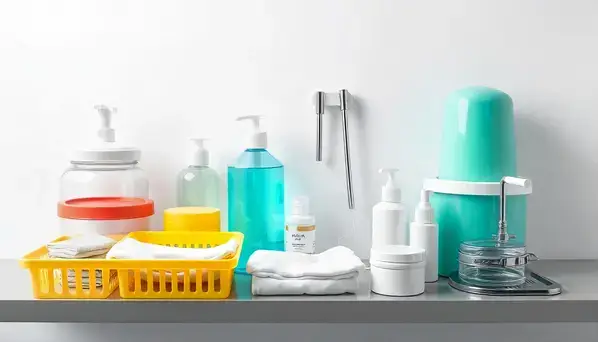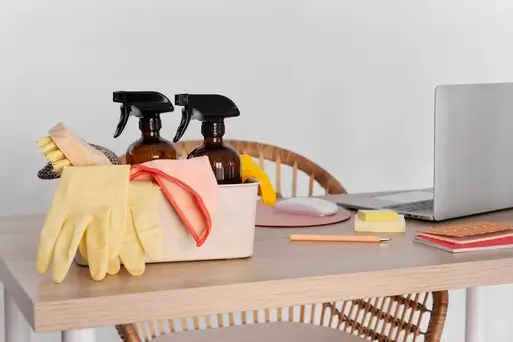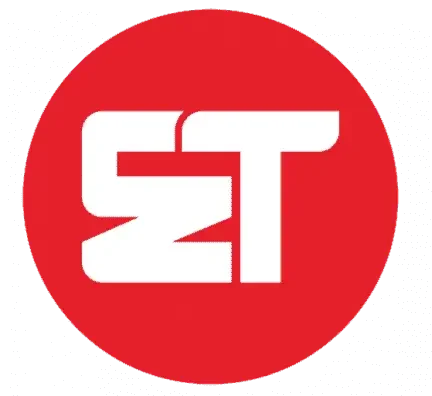What is Household Health Supplies (Produk Kesehatan Rumah Tangga – PKRT)
Produk Kesehatan Rumah Tangga (PKRT), or Household Health Supplies, refers to a category of consumer products used daily to preserve hygiene, sanitation, and environmental health at the household level. These products play a preventive role, aiming to reduce exposure to harmful microorganisms, maintain cleanliness, and promote general well-being, without falling into the classification of medicines, cosmetics, or medical devices.
PKRT products are distinguished by their functional use in personal and domestic settings, where they come into direct or indirect contact with the human body, household surfaces, or tools associated with food and environmental hygiene. Because such contact poses potential health risks if the products are improperly formulated or contaminated, the Indonesian Ministry of Health subjects the entire PKRT sector to strict regulatory control through a notification or licensing system.
This regulatory mechanism ensures that only products that have been scientifically assessed and verified for safety, efficacy, and quality are allowed to circulate in the Indonesian market. The system requires that every product, whether manufactured locally or imported, undergoes evaluation to confirm that it meets the applicable chemical, microbiological, and physical standards. This includes verification of raw materials, concentration of active substances, pH balance, labeling accuracy, packaging integrity, and consumer-use safety.
From a public health perspective, the PKRT regime is designed to prevent disease transmission and protect consumers from exposure to hazardous or unapproved substances commonly found in low-quality household chemicals. From an industrial perspective, the framework creates a level playing field, encouraging fair trade practices and sustainable market competition by ensuring that all producers and importers meet the same regulatory benchmarks.
For manufacturers, importers, or distributors, obtaining a valid PKRT notification certificate is not merely a procedural formality. It is a statutory obligation and a key determinant of market legitimacy. A PKRT license confirms that the product has passed due diligence on formulation, safety testing, labeling, and packaging. Only after obtaining this authorization may a product be legally produced, imported, or distributed within Indonesia.
Failure to secure a valid PKRT notification can lead to administrative sanctions, withdrawal from the market, or product seizure by regulatory authorities. Consequently, regulatory compliance in PKRT not only safeguards consumer health but also serves as a commercial assurance of credibility, reliability, and long-term sustainability for companies operating in Indonesia’s competitive household-product sector.

Read More: Product Classification According to SNI Requirements
Categories and Services under PKRT
PKRT products in Indonesia are systematically classified according to their intended use, level of health risk, and potential impact on consumers and the environment. This classification serves as the foundation for determining the regulatory pathway, documentation requirements, and testing obligations applicable to each product type.
The Indonesian Ministry of Health distinguishes PKRT products into functional categories, each governed by specific technical standards, testing protocols, and safety evaluations. These categories also influence how product claims (such as antibacterial, antiseptic, disinfectant, or deodorizing) must be substantiated and presented on labels or promotional materials.
- Household Disinfectants and Sanitizers
This category includes products intended to eliminate or control harmful microorganisms on inanimate surfaces and domestic environments. Common examples are liquid or spray disinfectants for floors, kitchen counters, bathroom tiles, and other frequently touched surfaces. Products such as bleach, chlorine-based solutions, and multi-purpose disinfectant sprays fall within this classification.
Because these products often contain active ingredients like ethanol, benzalkonium chloride, or sodium hypochlorite, they are subject to stricter evaluation on concentration, formulation safety, and labeling compliance. Proper usage instructions and safety warnings are mandatory to prevent accidental misuse or chemical exposure. - Personal Hygiene Aids
This group covers products that come into direct contact with the human body but do not qualify as cosmetics or medical devices. Examples include sanitary pads, panty liners, wet wipes, cleansing tissues, cotton buds, and disposable masks.
For these products, the focus of regulation lies on microbiological safety, material quality, and skin compatibility. Products must be non-irritant, hypoallergenic, and free from harmful residues such as formaldehyde or fluorescent whitening agents. The manufacturing process must adhere to hygienic production standards to ensure consumer protection, particularly for items used by infants, children, or individuals with sensitive skin. - Insect Control and Pest-Repelling Products
This category encompasses insecticides, repellents, mosquito coils, sprays, electric vapor devices, and traps used to control or repel insects and other pests in domestic settings.
Such products often involve active substances with toxic or volatile properties, requiring a comprehensive evaluation of formulation, exposure risk, and packaging integrity. The Ministry of Health mandates clear labeling on safe use, ventilation requirements, and disposal methods. In addition, the product’s efficacy claim (for instance, “kills 99% of mosquitoes”) must be supported by laboratory testing and performance data before approval. - Laundry and Dishwashing Agents
Laundry detergents, fabric softeners, dishwashing liquids, and related cleaning agents fall under this group. Since these products come into indirect contact with skin and food utensils, their safety assessment focuses on residual chemical tolerance, biodegradability, and user safety.
All surfactants, fragrances, and coloring agents used must comply with acceptable concentration limits to prevent irritation or environmental contamination. Proper labeling regarding dilution ratios, storage instructions, and emergency handling procedures is also required to support safe consumer use. - Air Fresheners, Deodorizers, and Environmental Hygiene Products
Products in this category are designed to improve indoor air quality or eliminate odors, such as air fresheners (liquid, gel, or aerosol), deodorizing sprays, aroma diffusers, and odor neutralizers.
Regulatory focus for these products centers on inhalation safety, flammability risk, and emission content. Volatile organic compounds (VOCs), propellants, and synthetic fragrances are assessed to ensure that their concentration levels are within safe exposure limits. In cases where the product also claims disinfection or bacterial reduction, it may be cross-categorized and subject to more rigorous testing.

Read More: BPOM vs Halal Certification: Regulatory Path for F&B
Procedure for PKRT Licensing in Indonesia
The process of obtaining a PKRT (Household Health Supplies) license in Indonesia involves multiple regulatory and technical stages designed to ensure that every product circulating in the market meets the national standards of safety, efficacy, and quality. The licensing system applies equally to local manufacturers and foreign companies that intend to import and distribute PKRT products within Indonesia through a legally appointed representative.
A PKRT license, often referred to as the PKRT Notification Certificate or Nomor Notifikasi PKRT, serves as formal authorization from the Ministry of Health, confirming that a product has undergone assessment and is permitted to be produced, imported, and distributed in Indonesia.
- Legal Eligibility and Representation
Before initiating any licensing procedure, the applicant must establish its legal eligibility.- Local manufacturers must hold a valid business license and operate a production facility that complies with hygiene and sanitation requirements.
- Foreign manufacturers are required to appoint an Indonesian legal entity or importer as the Authorized Representative who will act as the license holder and bear responsibility for the product’s compliance throughout its market life cycle.
The appointed representative is accountable for submission accuracy, documentation integrity, post-market reporting, and coordination with the Ministry of Health in the event of recalls or safety alerts.
- Preparation of Technical Documentation
The preparation of a comprehensive technical dossier is the foundation of a successful PKRT application. This dossier provides regulators with detailed information on the product’s formulation, safety, performance, and labeling. Key components generally include:- Administrative documentation, such as business licenses, manufacturing or import permits, and power of attorney (for foreign brands);
- Product information, including trade name, intended use, composition of active and inert ingredients, and detailed manufacturing process flow;
- Laboratory test results, confirming product safety, microbial limits, and physical-chemical properties;
- Label and packaging design, showing product name, usage instructions, precautionary statements, batch code, and importer/manufacturer details in Bahasa Indonesia;
- Material Safety Data Sheet (MSDS) and storage conditions, ensuring proper handling and hazard identification;
- Performance data or efficacy tests for products claiming disinfectant, antibacterial, or insecticidal functions.
A well-structured dossier reduces the likelihood of queries during evaluation and accelerates the approval timeline.
- Submission and Evaluation Process
Applications are submitted electronically through the Ministry of Health’s Online PKRT Registration System. Once uploaded, the submission undergoes two primary review phases:- Administrative Evaluation: verifying the completeness and validity of documents, legal status of the applicant, and the conformity of labeling and packaging.
- Technical Evaluation: assessing safety data, formulation consistency, and compliance with national PKRT standards. For certain products, especially high-risk disinfectants or repellents, laboratory testing may be requested to validate performance and stability claims.
If all requirements are met, the Ministry of Health will issue a PKRT Notification Certificate, assigning a unique identification number (Nomor Notifikasi). This number must appear on the product’s label before it can be distributed or sold.
The notification typically remains valid for a defined period and can be renewed upon expiration, subject to proof of continued compliance and updated product information.
- Post-Market Supervision and Obligations
After obtaining approval, the product becomes subject to post-market surveillance, conducted periodically or at random by the Ministry of Health. This supervision aims to ensure that the products distributed to consumers are identical in composition, labeling, and quality to those that were approved during the licensing process. Companies are required to:- Maintain accurate production, importation, and distribution records;
- Report any product recalls, safety incidents, or changes in formulation to the authority;
- Ensure that all labeling and advertising remain truthful and not misleading; and
- Cooperate during on-site inspections or sample testing.
Failure to maintain compliance may result in administrative sanctions ranging from warning letters to suspension or revocation of the PKRT notification.
- Estimated Timeline and Service Cost Considerations
The processing time for PKRT licensing may vary depending on the product’s risk classification, completeness of documentation, and whether laboratory validation is required.- For low-risk PKRT, the evaluation may be completed within several weeks.
- For high-risk PKRT, which require in-depth technical review or product testing, the process can extend to several months.The total cost typically includes:
- Government administrative fees;
- Laboratory analysis or testing costs (if applicable); and
- Professional service fees for dossier preparation, translation, and regulatory handling.
Conclusion
The regulation of Produk Kesehatan Rumah Tangga (PKRT) in Indonesia underscores the government’s commitment to ensuring that all household health supplies circulating in the market are safe, effective, and of verified quality. PKRT products, ranging from disinfectants and personal hygiene items to pest repellents and environmental cleaners, play a vital role in maintaining public health and environmental sanitation. Therefore, compliance with PKRT registration requirements is not merely administrative; it is a legal and ethical obligation that protects consumers while strengthening a company’s credibility in the market.
For both local manufacturers and foreign brand owners, understanding the classification, documentation, and procedural stages of PKRT licensing is essential to achieve timely market access. A well-prepared regulatory strategy ensures smoother approval, minimizes rejection risks, and sustains compliance during post-market supervision. In a landscape where regulatory scrutiny continues to evolve, proactive adherence to PKRT standards is a mark of professionalism and corporate integrity.
At ET Consultant, we assist businesses in navigating every stage of the PKRT compliance journey, from product classification and dossier preparation to submission, communication with the Ministry of Health, and post-approval advisory. Our expertise combines legal precision with practical experience, ensuring that your products meet all regulatory standards and are lawfully marketed in Indonesia. Whether you are a local enterprise or a multinational principal seeking to expand into Indonesia’s growing hygiene and sanitation sector, ET Consultant provides the regulatory clarity, efficiency, and assurance your business needs to thrive in a compliant and sustainable manner.
***
ET Consultant is a Business Consultant and Legal Consultant Expert that provides support for local and multinational clients to start and manage their business operations in Indonesia. ET Consultant specializes in Business Incorporation, Licensing & Legal, Accounting & Taxes, Immigration, and Advisory Services.
Ready to find out more?
Excellent and Trusted Consultant (ET Consultant)
PPHUI Building Lantai 2 suite 210 Jl. H.R. Rasuna Said Kav. C-22 Kuningan
Jakarta Selatan, 12940 Indonesia.
Tlp : 021 5290 7039
Email : [email protected]


